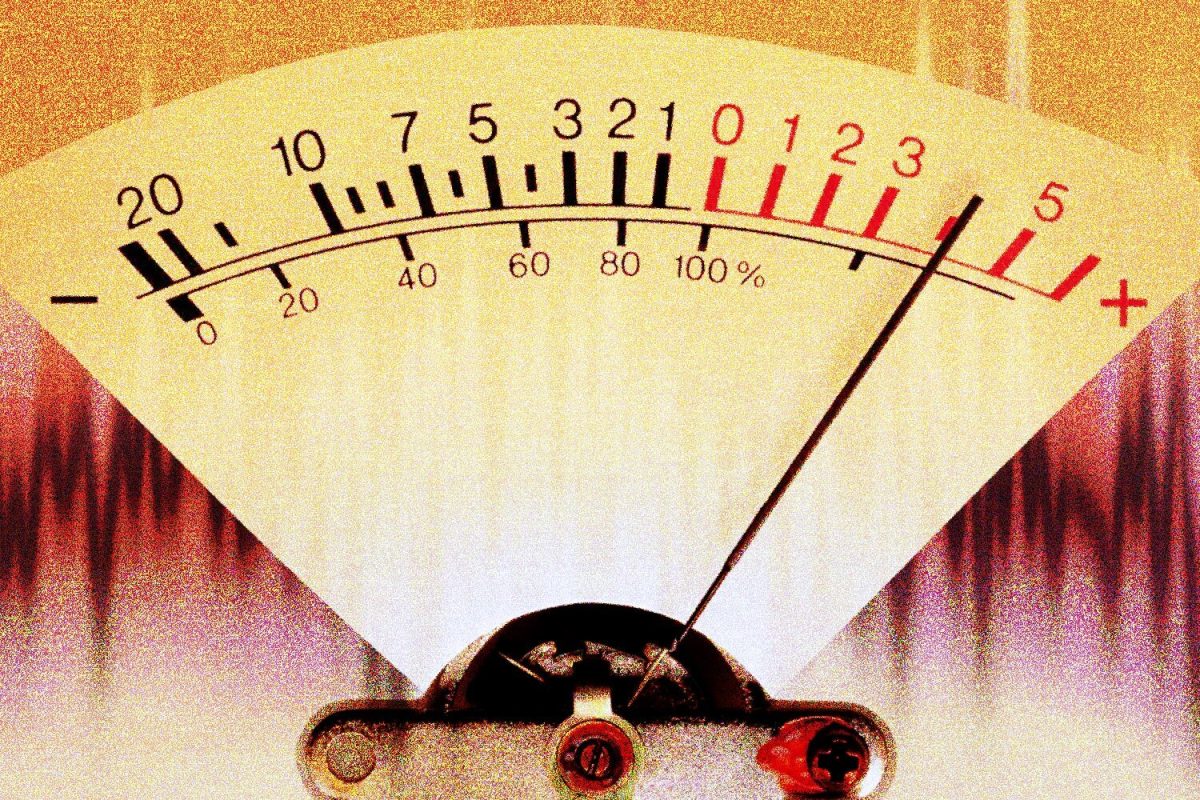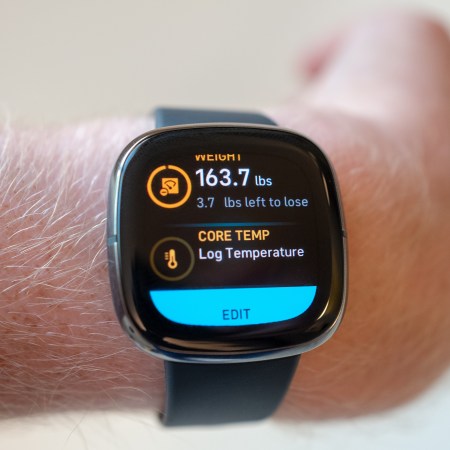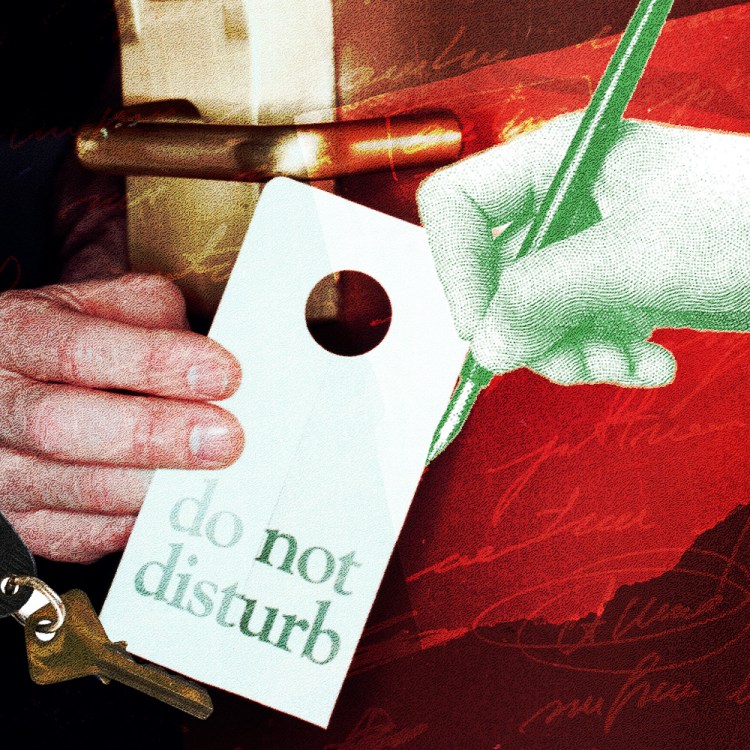“Why don’t we think more about noise? It’s because we consider noise to be a necessary sacrifice. And the bottom line is that if the activity is harmful to the community then we have [in effect] just agreed that money trumps human health and well-being. That’s ugly.”
Nina Walker wants to make a lot of noise about the merits of quiet. She’s an assistant professor of epidemiology at Brown University School of Public Health and founder of Noise and the City, a campaign and research organization studying urban noise levels. She argues that quiet is a human right. “It’s a negotiation between many different factors,” she says. “We should all at least have the right to negotiate for peacefulness. It’s a matter of all voices being heard.”
Quiet’s deep association with class makes that difficult. While it’s true that prime real estate still tends to be located in city centers — close to the action — it’s still the poorer members of society who are invariably housed closest to transportation lines and factories. There is, as Walker puts it, an inequitable distribution of quiet.
“Typically and historically, we have placed our ‘acoustical garbage’ in areas of our cities, towns and villages where the voiceless commonly reside,” she says. “These voiceless people are more than likely poor and vulnerable.” Meanwhile, she anticipates a future where “quieter cities” will only be available to those who can afford the tech that’ll make their lives less noisy.
Should the matter of noise be taken so seriously? There are many reasons why it’s not — at least, relative to air pollution. It’s temporary, for one; loud, distracting noises typically come and go, leaving no trace on the environment. (They’ve often disappeared by the time any local authority can respond to a complaint). Plus, as noise isn’t visible, its negative effects tend to pass unnoticed, however real as those effects may be. And then there’s the matter of perception: noise is considered an indicator of progress, of industrialization. This is often welcomed.
“Realistically, our cities in particular will never be quiet,” reckons Walker. She concedes that the pandemic lockdown experience gave us a rare inkling of how quiet our cities could be. But we’re unlikely to experience that again. “Second, not everything should be quiet. There is an acoustical cultural aspect that should also be respected. I’m not sure that quiet should necessarily be our end goal, so much as peacefulness.”
Light Pollution: The Global Scourge We Like to Ignore
As artificial light spreads, we don’t just “lose the night sky.” As astronomer Connie Walker sees it, “we lose part of ourselves.”Can Someone Turn It Down?
How do you make a city more peaceful? Well, it costs money that city authorities are typically unwilling to spend. And even when legislators are willing to look into new, “sound-dampening” projects, correcting a city’s past mistakes often proves too large (and radical) of a lift. “Changing urban infrastructure, zoning regulations and so on, it’s just not a vote winner,” says Gloria Elliott, chief executive of the UK’s Noise Abatement Society, the world’s oldest pro-quiet campaign group. It’s pushing its “Quiet Mark” standard for new household and industrial products.
Fortunately, technology is offering some prospect of a quieter future: from leaf-blowers to air-conditioning units to building materials (Arizona and California are experimenting with a rubberized asphalt called Quiet Pavement), next-generation products will produce either less sound, direct it more efficiently or mitigate its transference. After two years of development, researchers at Brigham Young University have produced a vacuum-assisted toilet that’s half as loud as your regular aircraft commode.
Still, these advances can’t fix the problem on their own. That’s because noise level recommendations — such as those published by the World Health Organization in 2018 — go largely ignored, legislation often goes unenforced and officials have a habit on focusing on the wrong areas. Eulalia Peris, an expert in environmental noise with the European Environment Agency, points out that efforts in noise reduction tend to hone in on high noise hotspots…even though far more people are exposed to lower, yet more consistent noise in other areas.
Consider the rules introduced by the European Union in 2018, mandating that traditional car engines, for example, must make 25% less noise, around four decibels’ worth. Sounds great. But at the same time, the EU has mandated that new silent electric cars must also be fitted with some kind of sound generator that kicks in below 12 mph, basically to prevent pedestrians from walking out in front of them. Get ready to hear a lot about AVAS — acoustic vehicle alerting systems.
Not that EVs were ever a panacea for car noise, anyway — most noise from accelerating automobiles can actually be attributed to the tires, not the engine. “Tire technology is just one example of the kind of thing that sounds trivial but can make a huge difference to living in cities,” says Peris. “And given that exposure to road transport is a major source of high noise levels for many people, it’s with that kind of detail that we need to tackle the problem.”
What Noise Does to the Body
Sound levels in metropolises regularly reach 70 decibels, as loud as a vacuum cleaner at close range. That’s not good for your ears. But it’s not great for the rest of your body (or brain), either. Recent studies have now revealed the link between sound levels and elevated levels of stress and blood pressure, not to mention worsened immune systems, heart issues, anxiety and depression. The body reacts to sound even while in deep sleep. This all carries a hidden economic cost, too, as it negatively affects employee performance and productivity.
The damage that noise inflicts on human life is subtle and insidious, but it’s been known about for some time. Back in 2002, a study led by Staffan Hygge at Sweden’s University of Gavle found that the reading comprehension skills of children who lived near an airport improved after the airport moved locations. In turn, the learning of children who now found themselves living by the new airport declined. Stress hormone levels also declined and rose respectively.
Another classic study, by environmental psychologist Arline Bronzaft in 1974, showed how the reading scores of sixth-grade students on the side of a school building that overlooked elevated railway tracks were a year behind those on the other, quieter side of the building. Both railway company and school consequently put in acoustical dampening, with the FAA also spending on schools near airports. As for further efforts? We’re back to money again.
“It was a wake-up call that noise levels had a real effect,” says Bronzaft, who is currently organizing the launch of an international noise abatement pressure group. “Since then we have more research, even if the US’ Office of Noise Control was shuttered [seven years after that study]. But has action followed that research? Unfortunately not. Companies influence government policy, of course, and they have not wanted to change that quickly…[but] dishwashers, washing machines, lawnmowers, it’s all noisy. What has pushed them to make any change? Really it’s consumers and growing numbers of community groups. Yet how much money that could be spent making quieter cities is being spent on medical costs, to ameliorate loss of learning, and so on?”
Why “Brown Noise” Is an Underrated Life Hack
The cousin of white noise is a game-changer for sleep and focusYou Have a Right to Quiet
And it’s not just about there being too much noise, Bronzaft stresses, but also the simple absence of silence. According to recent studies, silence can prompt the hippocampus area of the brain to generate new cells. Small wonder that, a few years back, Finland’s tourist board began to market silence as a desirable resource, like clean water. Perhaps one day medicine will prescribe silence therapeutically. Perhaps too, you should stop constantly plugging in your earphones.
“There’s so much demand on our senses already that we bring pressure on ourselves sometimes,” suggests Are Holen, professor emeritus of behavioral medicine at the Norwegian University of Science and Technology. “We all feel that relief when we move from a very noisy environment to a quiet one. That’s real. Neuroscience tells us that quiet is necessary for the free flow of thoughts, for the mental wondering that rests the mind, allows it to organize thoughts and impressions, to drive creativity and new ideas. But making cities quieter is not on the political agenda because we don’t tend to act on that experience of needing quiet.”
Andrew Smith, professor of psychology at the University of Cardiff, agrees. A specialist in the non-auditory effects of noise on cognition and health, he says we’ve become acclimatized to high noise levels. We’re unconscious of the damage they’re doing — the fact that our higher heart rates have becomes standardized, and our mental health issues normalized.
We’re failing to recognize the scope of the damage. “The thing is that while there may be physiological health consequences of living in loud cities, this is more about the annoyance of noise being a quality of life matter. It’s the annoyance of noise that has the deepest effect, psychologically,” he stresses.
“First, we need to agree more clearly about what we mean by ‘noise’ in the first place,” he suggests. “We can call it ‘unwanted sound’ and while we accept noise as often a necessary part of what we’re doing, much noise falls outside of that definition. To me my music is music. To my neighbors it’s noise. And then we need to think about the issue in terms of how we all live in a soundscape, in an acoustic landscape, and how we can improve that. We need places where we can go to find quiet. You might not realize it, but you need quiet.”
The Charge will help you move better, think clearer and stay in the game longer. Subscribe to our wellness newsletter today.


























